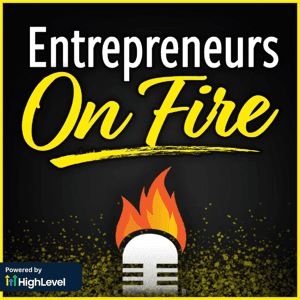Scott Duffy is back for round two on the podcast! Together, they pull back the curtain on the world of AI cloning for entrepreneurs, creators, and founders. You’ll discover how digital twins are transforming business operations by helping leaders scale their time, impact, and sales—freeing them from repetitive tasks while deepening engagement. The hosts break down real-world use cases, compare leading platforms, and share their proven strategies for launching a successful AI clone in just seven days. If you’re curious about automating business bottlenecks without sacrificing the "human" touch, this episode is for you!
Topics Discussed
- What is AI Cloning? Definitions and practical explanations of AI clones, digital twins, and how they're used for scaling knowledge and time.
- Clone Shop AI Process: How Joe Fier and Scott Duffy help clients audit their business, identify bottlenecks, and launch digital clones quickly and securely.
- Comparing Cloning Platforms: In-depth review of ChatGPT, HeyGen, and Delphi. Discussion on the strengths, weaknesses, and security concerns related to each.
- Scripted vs. Unscripted Clones: The difference between clones built on pre-written scripts (Heygen) and those leveraging larger knowledge bases (Delphi).
- Securing Your Intellectual Property: How platforms like Delphi protect personal data, and the risks of using more “open” foundational models.
- Cloning Use Cases: Real-world examples: HR support, sales, coaching, customer service, pastors, religious organizations, and content creation.
- Launching in Seven Days: Step-by-step overview of Clone Shop AI’s audit, strategy, and quick-launch process for getting clients live quickly.
- Automations & Actions: Built-in features on Delphi for follow-ups, recap emails, memory nudges, and integrations with other systems.
- Self-Improvement & Content Creation: Creative ways people use their clones—from prepping for talks to writing books and blog posts using their own IP.
- Language & Modality Flexibility: How Delphi clones engage users across 50+ languages via text, voice, and even phone calls, ensuring high accessibility.
Resources Mentioned
- Clone Shop AI: https://thecloneshop.ai
- Delphi: https://hustleandflowchart.com/delphi
Connect with Scott Duffy- LinkedIn: https://www.linkedin.com/in/scottduffymedia/
- Website: https://scottduffy.com
Connect with Joe Fier
🤖 Chat with Joe's AI Clone: https://hustleandflowchart.com/aijoe
📰 Newsletter: https://hustleandflowchart.com/subscribe
🎙️ Podcast: https://hustleandflowchart.com/
🔗 LinkedIn: https://www.linkedin.com/in/joefier/
📸 Instagram: https://www.instagram.com/joefier/
Ready to scale your business the smart way?
Subscribe to Hustle & Flowchart now for more game-changing episodes on entrepreneurship, automation, and the future of work.
Drop your questions, feedback, or cloning curiosity in the comments—or DM us on LinkedIn.
Don’t get left behind: discover your digital twin today!




































